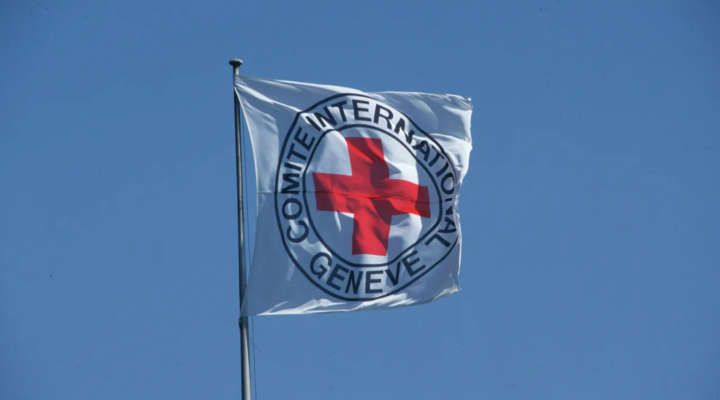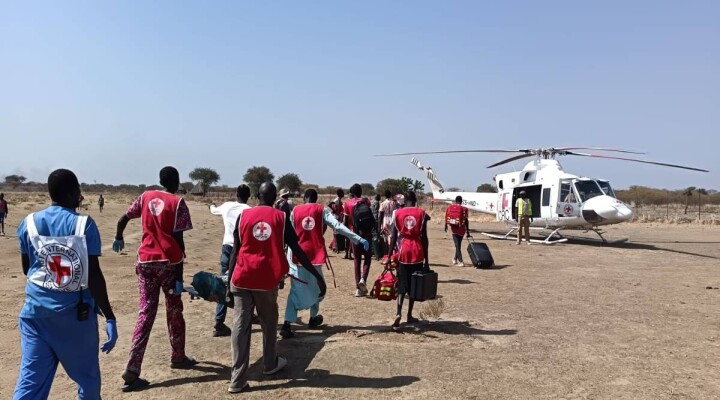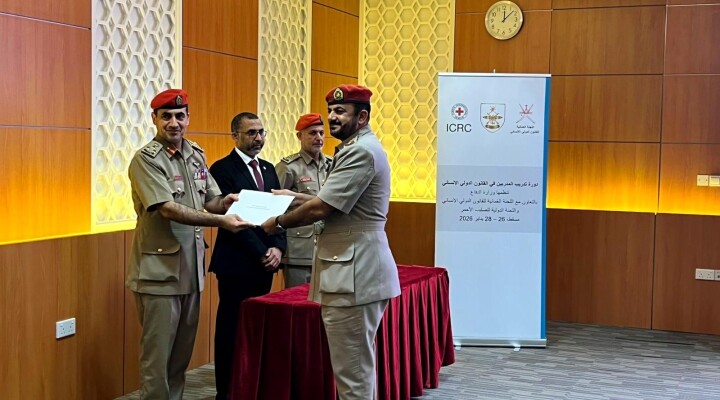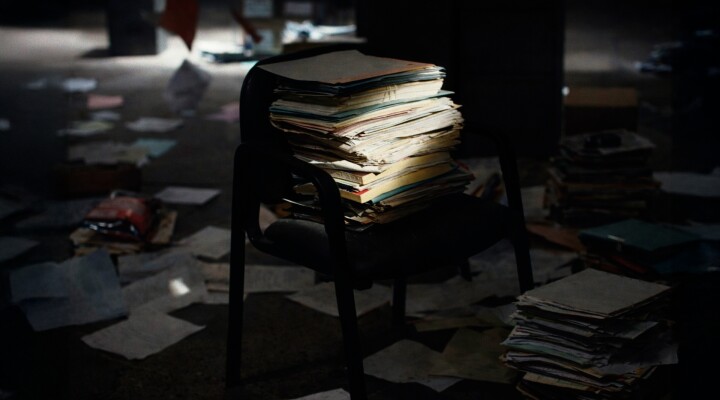Syria: World attention wanes while millions slide into poverty and despair
Over eleven years of crisis in Syria has exhausted the population’s capacity to cope, even as global attention is shifting toward other high-profile crises. The extensive destruction and gradual deterioration of vital infrastructure – water, electricity and health care – are stretching the population’s ability to cope, while thousands of children stranded in camps and other places of detention in north-east Syria are still spending their childhoods in appalling, harsh conditions no child should ever experience.
Today, as world attention is waning, the complex crisis in Syria is putting essential public services under a huge strain, bringing them close to their breaking point. There is a need to think long-term when designing solutions before it’s too late. Years of conflict are bringing the drinking water systems of major Syrian cities, like Aleppo, closer to their breaking points. Today, only 50% of water and sanitation systems are still functioning properly across Syria, a major water crisis affecting millions.
‘’The long-term effect of the crisis has led to the degradation of critical infrastructure. When water, health, electricity and education are not available to the population, then millions of Syrians risk to slide into poverty and despair”, said Peter Maurer, the president of the International Committee of the Red Cross.
In north-east Syria, thousands of children are spending their childhoods in misery, and it is high time to find the political will to act before more lives are lost. The world must not look away while children draw their first and last breaths in camps or grow up stateless and in limbo. Of the more than 56,000 people living in Al-Hol camp, two thirds are children living in conditions far below international standards in terms of access to food, water, health care and education. These children are endlessly exposed to dangers and their rights often ignored.
‘’I dream about tasting lemons, tomatoes and meat. I wish I can eat those”, said 12-year-old Rami*, resident in Al-Hol camp. “My only hope is to leave the camp as soon as possible.’’
This is one of the biggest and most complex child protection emergencies of our times, but in spite of the complexity of the situation, both on legal and practical levels, it is not impossible to act. Collective action is required as there are positive examples of repatriations and states can learn from one another. They do not have to tackle this crisis alone.
“We welcome the efforts that have been made to repatriate women and children back to their home countries, but more must be done, and swiftly. The lack of attention on the Syrian conflict is not an excuse not to focus on the return of women and children from the camps in north-east Syria”, said Mr. Maurer while he visited Al-Hol camp on 12 May.
In Aleppo, al-Khafsa power plant is also irremediably destroyed, and it would take at least five years to rebuild this facility under stable conditions.
Across Syria, a declining economy due to the consequences of the crisis and sanctions dramatically reduces the population’s ability to address vital needs and access basic services. Humanitarian needs in the country remain massive; 90% of the population is living under the poverty line, and some 14.6 million people, out of 18 million, are still in need of humanitarian assistance. In Aleppo, al-Khafsa power plant is also irredeemably destroyed, and it would take at least five years to rebuild this facility under stable conditions.
Notes for editors:
The ICRC and the Syrian Arab Red Crescent (SARC) continue to run a hospital in Al-Hol for now over three years, providing much needed medical care to the vulnerable population in an area where access to the very basics is an immense challenge. Made until recently of tents, as of 2022, this hospital has been converted into a prefabricated structure, making it more resilient and capable of better withstanding harsh weather conditions, providing improved conditions for the patients and for the medical staff working there. It is run by a 57-strong medical team – doctors, nurses, midwife, lab technician, X-ray technicians and support staff – and provides 50-60 consultations a day on average; in 2021, it treated over 11,000 medical cases.
In addition to its health services, the hospital provides Mental Health and Psycho-social Support (MHPSS). The service offers individual sessions and family sessions, depending on the needs. Psycho-educational activities are provided for the children. The activities are adapted to address the needs of children living in Al-Hol, with the purpose of improving and strengthening their self-esteem and self-confidence.
Al-Khafsa water treatment plant, located 80 km east of Aleppo city, is one of the main sources of suppling millions of people with water. If Al-Khafsa water treatment plant was not functioning, 3.2 million people would be affected with no alternative water source. The technical assessment of this water treatment plant was completed in late 2021, and the works commenced in early 2022. The assessments of water treatment plants in other parts of Syria are in progress.
The ICRC along with SARC carried out thousands of engineering projects in Syria, including Aleppo governorate, both responding to emergencies and providing sustained support to local service providers to curb the decline in service delivery. Last year, more than 17 million people across Syria benefited from different water and habitat interventions.
The ICRC needs to continue to respond to the immediate needs of the displaced and other affected populations with material assistance, health and mental health support, but also dialogue and interventions with entities involved. Relief, first aid, mobile health units, and access to water will continue to be life-saving interventions for those recently displaced, but also for those unable to return
For more information, please contact:
Adnan Hizam (Damascus) ahizam@icrc.org +9631133806205
Imene Trabelsi (Beirut) itrabelsi@icrc.org +961 3 138 353
Jason Straziuso (Geneva) jstraziuso@icrc.org +41227302077
Log-list
Title : Syria:
Location : Syria, North East Syria, Aleppo
Length : 5.31 min.
Format : HD mp4
Producer : ICRC
Production languages : Arabic/ English
Filming dates : 12 May 2022 (Al-Hol Camp), late 2021 (Al-Khafsa, Aleppo)
Copyright : ICRC access all
Shortlist /Script:
00:00:00 --> 00:00:18
General footage Al-Hol camp (3 shots)
00:00:18 --> 00:01:10 Soundbite Rami*, 12-year old, Al-Hol resident
00:00:18 --> 00:00:28
During winter, it’s very cold here, kids are getting sick and will infect other people.
00:00:28 --> 00:00:37
It snowed the other day, and everyone got sick because it was so cold in the camp.
00:00:37 --> 00:00:41
The summer is so hot here and people get sick.
00:00:41 --> 00:00:51
I wish I could eat lemons, tomatoes and meat, I wish I could eat those.
00:00:51 --> 00:00:57
I went to the market the other day to buy some stuff.
00:00:57 --> 00:01:02
One place is selling tomatoes for 1,200 SYP and another one for 2,000 SYP and another one for 3,000 SYP.
00:01:02 --> 00:01:04
How will we buy them! They’re so expensive!
00:01:04 --> 00:01:10
I hope we leave the camp; I wish we get out of here as soon as possible.
00:01:10 --> 00:01:20
Peter Maurer, ICRC President, with Rami*, 12-year old, Al-Hol resident.
00:01:20 --> 00:01:36
General footage Peter Maurer and ICRC staff in Al-Hol field hospital supported by the ICRC (3 shots).
00:01:36 --> 00:01:47
General footage reception area in Al-Hol field hospital supported by the ICRC (2 shots)
00:01:47 --> 00:03:44 Soundbite Peter Maurer, ICRC President
00:01:47 --> 00:02:44
This is my third visit to Al-Hol, and I have to say that we have made some improvements in some parts the services for those who are here.
I just visited the hospital which is definitely an improvement compared to what I saw before.
Overall in the camp yet, this is a very difficult situation and very little progress has been seen over the last three years.
Children grow up here in a situation of hopelessness.
This is not a place on which anybody should be confronted with.
There is no perspective, and this is no situation children should grow up in.
Therefore, I appreciate all those countries who have decided to take back citizens who live here in the camp. Mothers and children. But more has to be done and more swiftly.
00:02:44 --> 00:02:56
The lack of attention on the Syrian conflict is not an excuse not to focus on the return of women and children from the camps in north east Syria.
00:02:56 --> 00:03:19
The long-term effects of the crisis has led to the degradation of critical infrastructure.
When water, health, electricity and education are not available to the population, then millions of Syrians risk to slide into poverty and despair.
00:03:19 --> 00:03:44
A new period is starting now with more efforts on the rehabilitation of basic social services to people. With more attention from the international community to this rehabilitation because this will lay the ground for longer term reconciliation and peace building in a society.
00:03:44 --> 00:04:18
General scenes of destruction Aleppo, Syria (5 shots)
00:04:18 --> 00:04:29
Damaged water infrastructure, Syria (2 shots)
00:04:29 --> 00:04:56
Al-Khafsa Water Treatment Plant, supported by the ICRC, Aleppo internal shots (4 shots)
00:04:56 --> 00:05:16
Al-Khafsa Water Treatment Plant, supported by the ICRC, Aleppo external shots (3 shots)
00:05:16 --> 00:05:31
External footage: Aleppo enhanced



